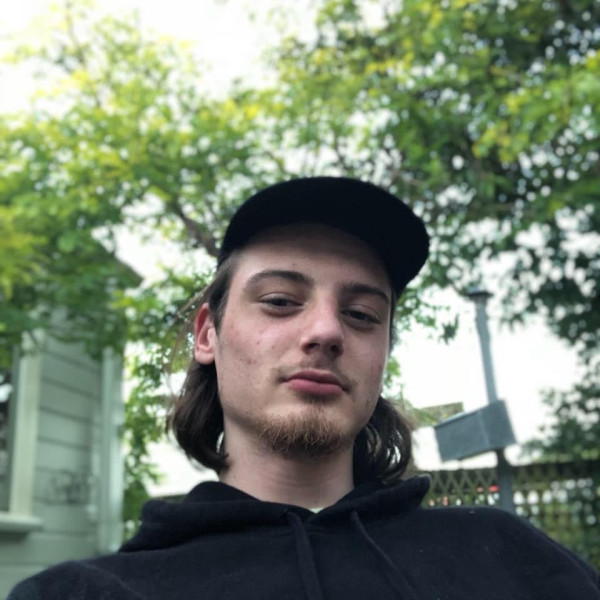This article was first published on November 23, 2023.
When Ben Mitchell was first diagnosed with attention deficit hyperactivity disorder (ADHD), he waited four months to see a psychiatrist for medication and the appointment cost him $600.
A year after this appointment, Ben says he needs to switch his ADHD medication because it’s triggered some side effects - but he can’t afford to see a psychiatrist.

Ben Mitchell says it doesn’t make sense why ADHD medication is singled out when other addictive substances like prescription painkillers do not face the same restrictions. Photo: Supplied.
“Switching my medication has caused me quite a bit of anxiety,” he says.
“I just can’t afford to pay that much right now. I’ll probably just have to wait until my next two year appointment comes around and ask then. It’s ridiculous really.”
ADHD medication under a tight grip
ADHD is a neurodevelopmental disorder that can make it hard for someone to keep focussed, control compulsive behaviours or cause them to be overly active.
ADHD experts are calling on Pharmac to allow general practitioners to prescribe ADHD medication so that people can afford to access their medication.
This comes as an Auckland GP and ADHD expert Dr Tony Hanne was found guilty in October of professional misconduct for prescribing ADHD medication without the approval of a paediatrician or psychiatrist.
Hanne declined to be interviewed by Re: News because of his ongoing court case but told the hearing his care for his patients motivated his action and if he did not act, hundreds of patients would have missed out on critical care in an overburdened health system.
Currently in New Zealand, medication to treat ADHD can only be prescribed by a psychiatrist or a paediatrician.
And someone who has an ADHD diagnosis needs to see a psychiatrist or a paediatrician to repeat their prescription every two years.
The Royal New Zealand College of General Practitioners (RNZCGP) medical director Dr Bryan Betty says the glaring issue with this is that psychiatrists and paediatricians are incredibly difficult and expensive to access - if you can access them at all.
In some parts of Aotearoa, there was no access to psychiatrists and paediatricians whatsoever, he says.

Dr Bryan Betty says there are GPs who are ready to specialise in ADHD treatment to share the workload. Photo: Supplied.
“We are hearing patients are being told they can only access psychiatrists if they go through the private sector, and these appointments cost hundreds of dollars, if you can get on a waitlist that is.”
According to non-profit organisation ADHD New Zealand, wait times are anywhere from six months to two years long, and some people are having to fork out $1400 to $3000 to see someone in the private health sector.
“And because their general practitioner is not allowed to prescribe the ongoing medication,” Betty says, “patients fall right through the cracks.”
Read more:
The call for GPs to be able to prescribe ADHD medication
The decision to get GPs registered as primary health specialists so they can effectively diagnose ADHD and prescribe medication is long overdue, nurse Robin Wynne-Williams says.
Wynne-Williams has worked with adults and children with ADHD for 30 years.
“There is no ethnic group, occupational class or social class that are immune to ADHD. But the way it’s diagnosed and treated discriminates against many who can’t access this support,” she says.
Wynne-Williams says undiagnosed ADHD costs the healthcare system more because it can increase someone’s risk of other health issues like Type 2 diabetes and mental illness.
Adults with ADHD are twice as likely to have Type 2 diabetes as their non-ADHD counterparts.
Nearly one in four women with ADHD have attempted suicide and adults with ADHD are five times more likely to attempt suicide than people without ADHD.
Why aren’t GPs treating ADHD?
A Ministry of Health - Manatū Hauora spokesperson says: “Any suitably qualified and trained health professional, such as a paediatrician, psychologist, psychiatrist, or GP can diagnose ADHD.”
But because diagnosing ADHD requires a detailed assessment that can take from one to three hours, the clinical capacity of GPs to diagnose someone in a typical 15-minute appointment makes this difficult to do.
But even if a GP could diagnose someone, only a paediatrician or psychiatrist could prescribe ADHD stimulants such as Methylphenidate - known as Ritalin - because they are classified as a Class B drug in the Misuse of Drugs Act 1977.
So even with a GP’s diagnosis, someone with ADHD would need to redo that diagnosis with a paediatrician or psychiatrist anyway.
GPs are ready to help
Bryan Betty says “there are already a number of GPs who have an interest in ADHD and want to go down this path if they were allowed to by the system”.
“There's no reason why someone who has been appropriately diagnosed with ADHD, appropriately responds to the medication, is seeing the same specialist GP for their issue over time who knows what's happening and knows their medical history, can't be managed by their GP.
“It’s not acceptable what is going on,” Betty says.
Two-year repeat prescription criteria to be reviewed
Betty says RNZCGP is focusing its energy on allowing GPs to repeat prescriptions every two years and has written to Pharmac to fix this problem quickly.
“ADHD medication is the only area where this re-prescription every two years from a psychiatrist actually occurs,” Betty says.
Pharmac director of operations Lisa Williams says it has agreed to review the renewal eligibility criteria and prescriber restrictions for funded ADHD medications methylphenidate and dexamfetamine.
”Before any changes are made, we will require clinical, legal and health economic input to help us assess possible impacts. We would also consider and ensure any changes would support wider changes in the delivery of health services to ensure equitable and safe access to treatment.”
A Medsafe spokesperson says the misuse and abuse of ADHD medication such as methylphenidate (Ritalin) is an “ongoing challenge in many countries, including New Zealand” which is why it is heavily controlled.
“The decision to remove ADHD medicines currently scheduled as controlled drugs from the misuse of drugs legislation, and purely classify them as prescription medicines can only be made through a change to the Act.”
Other ways to minimise ADHD medication misuse are needed
Ben Mitchell says it doesn’t make sense to him why ADHD medication is being singled out.
“There's always going to be people abusing drugs or abusing the system,” he says.
“But it doesn’t make sense why people with ADHD have to go through all of this, when people who leave hospital are often handed strong prescription painkillers - which we know are addictive - and no one seems to blink an eye.
“So there must be a better way to know people are abusing the medication than just making it extremely hard for everyone to get the medication they need,” he says.
Work to improve ADHD diagnosis and treatment in the works
Ministry of Health officials have started working with ADHD New Zealand and other agencies, including Pharmac, Te Whatu Ora, and Whaikaha, to determine what could be done to support people with ADHD.
"Although this work is still in the very early stages, it will ultimately help people access early diagnosis and consistent treatment, which is key to lessening the impact that the condition has on people with ADHD,” a Ministry of Health spokesperson says.
“While stimulant medications are often a core element in the treatment of ADHD, other treatments are effective in combination with medication or can be helpful in their own right; these include cognitive behavioural therapy, parent/family training and adjustments and supports in education and employment settings.”
More stories:
My ADHD diagnosis saved my life. The govt needs to help others get theirs
“I finally started to understand my life. I started making sense of the way I learn."
New over-the-phone abortion service is getting 100 bookings a week
“We are receiving around 15 bookings a day. Certainly more than we were expecting.”
This non-alcoholic kombucha has nearly 3 times the legal alcohol limit
In response to our testing, the Daily Organics co-director said “that’s your opinion”.